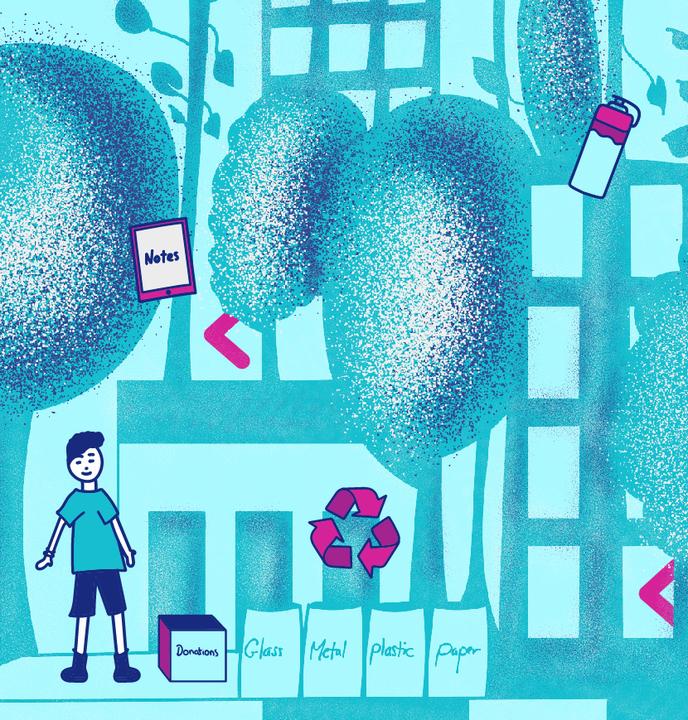Top Universities Going Green
University Life
2 mins read
Share

Updated at: 25 November, 2025
Published at: 20 September, 2021
By Engy Hassan
Top Universities Going Green
University Life
2 mins read

Updated at: 25 November, 2025
Published at: 20 September, 2021
By Engy Hassan
Share
There are two aspects to think of when it comes to universities going green; the first is what the university is offering students from facilitation and amenities that help them maintain their sustainability, in addition to offering futuristic courses and programs to educate them about the environment and being more environmentally conscious. The second aspect is how the university itself handles the building's design, green spaces, water stations, and sustainable markets held inside the premises.
Top 5 UK Universities Going Green
1. University of Gloucestershire
It received the Special Recognition Award in 2013 for its immense effort through courses and campus facilities. The University of Gloucestershire sees sustainability as the ultimate challenge of the 21st century. It holds its place at the top of the “Green League”.
2. Manchester Metropolitan University
In 2020, Manchester Metropolitan University was awarded maximum marks for environmental policy, sustainability staff, auditing and environmental management systems, and education for sustainable development.
3. Nottingham Trent University
In 2016, Nottingham Trent University was named the most sustainable university in the UK. The university’s success is due to the award-winning Pavilion building which is carbon-negative and produces more energy than it needs to run many other sustainable projects.
4. Northumbria University
In 2020, Northumbria University ranked the 4th most sustainable university in the UK due to its environmental sustainability policy and strategy, carbon management, and waste and recycling outlets.
5. The University of Worcester
The university, with the local council, won two Green Apple Environmental Awards for joint initiatives.
6. City University of London
It’s considered the greenest university in London, which is something to be highly regarded as London is one the busiest cities in the world.

Top 5 Worldwide Universities Going Green
1. Simon Fraser University, Canada
Through green initiatives, the university has contributed immensely towards environmental sustainability. The School of Business and one of the gyms are included under this initiative, along with other 5 buildings.
2. University of Alcalá, Spain
According to CoolMyPlanet, the University of Alcalá is considered the 3rd most sustainable university in the world. It has many sustainable practices from recycling to energy efficiency, including water and transport.
3. Rafael Lándivar University, Guatemala
The university became a benchmark for other educational institutions in the country after implementing an environmental management system, in both environmental research and proper use of the natural resources available in the campus and its surroundings.
4. Universidad Iberoamericana, México
Alongside its immense effort to reduce greenhouse gas emissions, the university incorporates sustainable transportation from and to its outdoor activities. It provides training for its staff by promoting the understanding of socio-environmental issues and sustainability principles to be translated into action in favour of the environment.
5. Dickinson College, USA
Dickinson has its renewable energy facilities. It runs a biofuel plant and recycles edible oil to generate energy. Dickinson aims to reduce its greenhouse gas emissions by 75% by the year 2030. More than 50% of the cafeteria’s budget goes to the local market to support domestic farmers and local vendors. All buildings have containers for recycling and composting. During the first year, students learn to live a sustainable lifestyle, with the option of living in a sustainable dormitory.
University Life
By Engy Hassan
Share
University Life
Updated at:
Published at:
By Engy Hassan
Share


